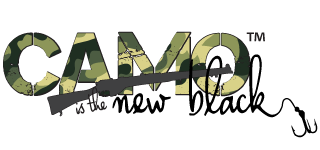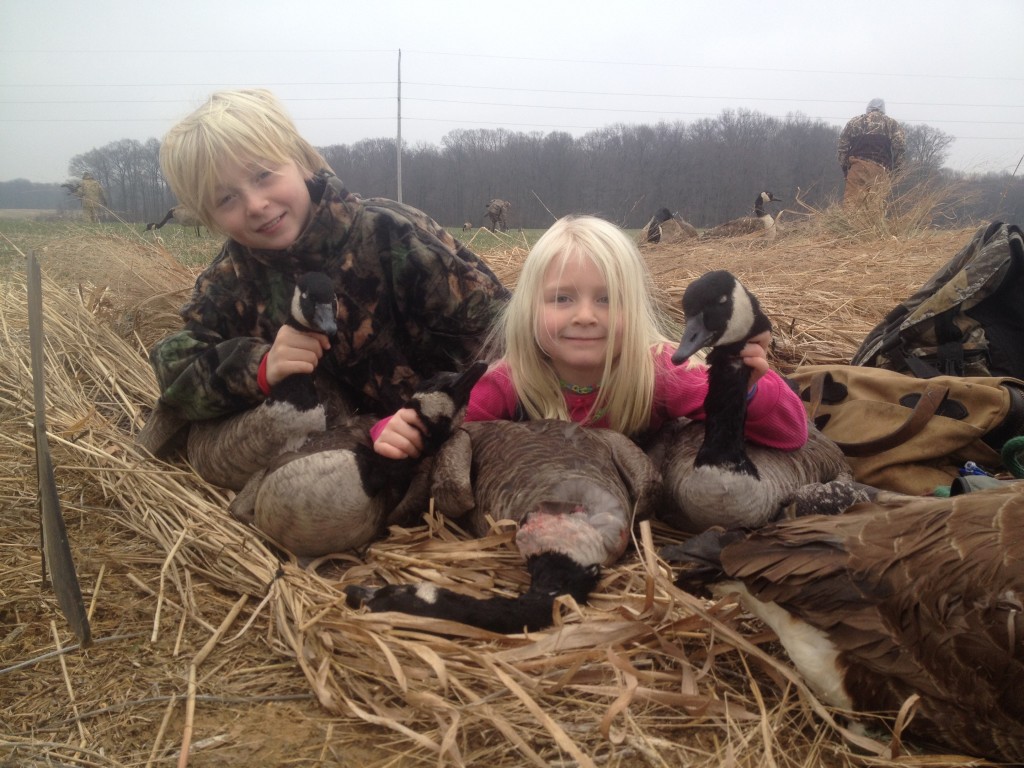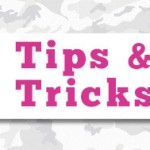
By Dan Wrinn
I consider myself a pretty hard core hunter. If you look inside one of my three freezers, as well as the freezer in my office, they are overwhelmingly full of things I’ve harvested. Ground venison outweighs ground beef, and ducks and geese outnumber chicken nuggets by at least ten times. As far as fish, well, I can’t really remember the last time I actually went to a store and bought fish. I can honestly say that me and my wife and two kids eat more wild game than store bought food. No doubt.
And now that my kids are getting older, I’ve started thinking about what I hope will be a long, personal relationship with their natural world that they will develop with the mentoring of me, my wife and my inner circle of hunting and fishing buddies. What I find most interesting at this point is thinking about how different my kids experience is and will be than mine was growing up. Let me explain.
While most of my hunting buddies have stories and most often pictures of their dads and grandfathers holding shotguns and rifles over recently conquered quarry, I don’t. In fact, no one in my family hunted or fished. And when my friends would ask me, “Wrinn, how did you get so into hunting?” I’d most often respond, “I really don’t know, must be in the blood or something.” And while I still don’t entirely doubt that, as I get older, I think more about one person in particular that I think provided perhaps “the spark” that eventually was responsible for my career, my way of life, and ultimately how I look at the world. Because as I remind folks that have not grown up duck hunters or around them (I’m a dyed in the wool duck hunter) duck hunting is NOT a hobby, it’s a way of life, a way of looking at the world different than most folks.
Her name was Mary Gallenkamp, the mother of my mom, my maternal grandmother. At some point in time she moved in with my family in the early 1970’s in what was at the time a very rural section of Connecticut. It was the only place my parents could afford on my dad’s truck driving salary. Gram was tough. She was one of 10 kids, the other nine were all brothers.
One afternoon a friend of my dad’s who would be affectionately referred to as “Uncle Gippy” my whole life took me and my brothers down to the beach in West Haven, Connecticut for some swimming and snapper blue fishing. Now Uncle Gippy deserves his due credit for first introducing me to fishing. In fact he and I have caught more fish together than I can even remember. He’s a great angler. However, it wasn’t the fishing that got me. When we got home that late July afternoon with a five gallon pale full of little snapper blues and Uncle Gippy brought it into my kitchen my grandmother’s eyes lit up. She grabbed it and within 2 hours transformed that smelly bucket into a fish fry for my entire family and most of the people that lived on our street. I can still see her gutting and cleaning the fish on carefully spread newspapers on the kitchen counter. I can still smell my kitchen that afternoon, 37 years later.
Before I knew it, I began netting native brook trout in some of our local streams and bringing them home for Gram to transfer into lunch or dinner. My pride swelled every time I’d bring her a stringer of trout and she’d grab the newspapers, start trimming fins with her sewing scissors, and start splitting fish. Eventually one day I barrowed a friends pellet gun, shot a couple of rabbits and brought them home. Gram couldn’t believe it. This time, she grabbed an old cook book, most of it still in Hungarian, and prepared those rabbits in a stew that she and I ate together. It may have been the most special meal in my life. The rest of the family was quite shocked that we were eating rabbits and wanted nothing to do with it. That made it even more delicious for me. As the years went on, I brought home more fish, more rabbits, pheasants, doves, deer, ducks, and geese. You name it, I hunted or caught it. I was even asked one day by a faculty member at my Connecticut boarding school, “Mr. Wrinn, can you please refrain from bringing dead deer to campus?” I had arrowed a beautiful doe that morning and didn’t have time to take it home before my third period physics class so it came to school in the back of my pick-up.
As time passed I spent less and less time at home, and less and less time with Gram. In fact we eventually began to grow apart. On weekend visits home from college I’d sense something different about her but never pursued it. Always too busy catching up with old friends or wandering my old h
aunts in familiar woods and waters. At some point my parents eventually explained to me that Gram was actually kind of sick and that she wasn’t likely to get any better. I later realized she was suffering from a form of dementia. The last few years of her life she more frequently referred to me as her own son but would eventually realize who I was.
When Gram finally passed away, my mom and I spent some time in her room, cleaning it up a little. By this time, I’d had my first child and my mom thought some day my kids could spend the night in gram’s old room. And this is when it happened. In cleaning out her room, hidden in the corners of her drawers, behind books, under old clothes, were little stashes of food. Candies, crackers, you name it, it was there. I couldn’t believe it. I looked at my mom and said, “Man, I guess she was further out there than I realized?” And my mom looked at me and calmy said, “No, not at all. Gram grew up through the Depression and some very tough times. And remember, her brothers all ate before she did.” It all made sense. The buckets of crappies, the roughed-grouse, the pheasants. I was bringing her food. Even more, I was probably helping her purge her memories of some very very difficult times. My family didn’t talk all that much growing up. Communication was not a virtue in my family. But I wish we had, I think I missed a lot. But the passion that has defined me and often consumes me was passed down to me through my grandma Gallenkamp and for that I am eternally grateful.
Now I have a son and a daughter, both of who like to come fishing and hunting with me. I often wonder which one of them will pass on my passions and beliefs to their following generation. I guess there’s no way to know now. But given my experiences, the defining “spark” can come from anywhere, not just grandpas and dads, but moms and grandmas too.
Dan Wrinn first started working for Ducks Unlimited‘s Governmental Affairs Office as an intern in 1994. Since then he has worked for Ducks Unlimited as the Director of Public Policy and a volunteer in Maryland.






Nice story!
Enjoyed your story very much!
[…] Don’t forget about your grandmas today! Check out this past post from Dan Wrinn about how his grandma shaped his outdoor life here. […]
Hi its Serena, I liked the article. Tell molly I miss here. Bye!